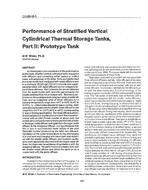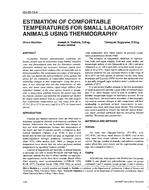High outdoor ventilation air requirements can lead to significant increases in building energy use, thermal discomfort, indoor air quality problems, and litigation. Engineers often avoid ground-source heat pumps because of the perception that there are no acceptable methods for conditioning the ventilation air. However, this difficulty is currently a problem with all types of heating and cooling systems. Decisions may be based on system performance at design conditions without regard to seasonal energy consumption. A bin method for evaluating the energy use of outdoor air treatment systems has been developed and is described in a previous paper. Another paper was limited to the discussion of a four-story office building in a warm climate and five ventilation air system options. This paper extends the application of the evaluation procedure to two additional options in three different climates (Birmingham, St. Louis, and Minneapolis). In addition to the four-story office building, the discussion also includes an eight-classroom wing of a school. The results indicate fan energy requirements have a strong influence on annual energy consumption of conventional and heat recovery equipment. The calculation of the building balance point temperature is critical since most systems permit the outdoor air to displace cooling equipment energy when outdoor conditions are below the room set point conditions. Heat recovery systems saved little annual energy in cooling-dominated climates but were more effective in colder climates.
Units: Dual
Citation: Symposium, ASHRAE Transactions, vol. 106, pt. 2
Product Details
- Published:
- 2000
- Number of Pages:
- 8
- File Size:
- 1 file , 420 KB
- Product Code(s):
- D-7254


